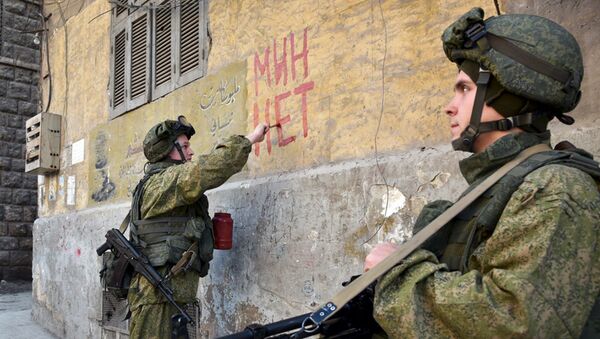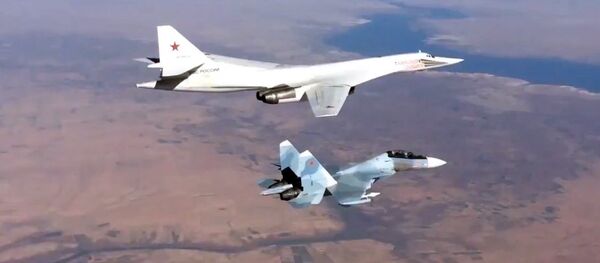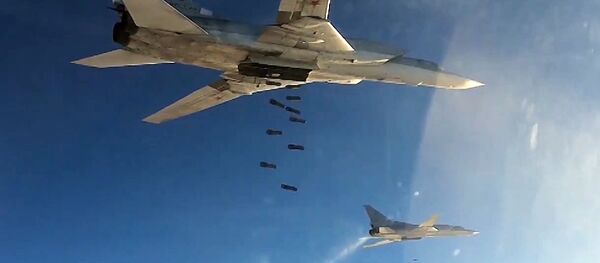He underscored that the Russian military operation started in the most difficult period of time, when the Syrian Army was forced to fight the terrorists that flooded into the country from all over the world.
"Militants were penetrating Syria from four sides, and many fronts were opened. The coastal areas of Latakia and Tartus were under threat at the time. So Russia chose the right moment for entering Syria," he said.
"For their part, militants and terrorist groups could no longer act with the degree of freedom that they had before," according to him.
"Russia is a state with enormous military power. Prior to entering Syria, Russia elaborated a number of strategies, which is why we saw the clear effects of its military operation right after its beginning in terms of the fight against Daesh and Al-Nusra Front," Ozugurlu said.
He also touched upon the role that Russia plays in the process of the Syrian Army restoring control of a significant part of the country.
He said that Russia's support of the Syrian Army, which at first was not ready for fighting in an urban environment, "was of great importance."
"Russia's involvement in this process played a big role in achieving today's results," he said, pointing to Russia's goal of reaching a compromise between the parties to the conflict.
Ozugurlu recalled that they include the Syrian government and "various medium-sized structures that are not comparable in scale with Daesh or Al-Nusra Front but that are supported from the outside."
"Upon entering Syrian territory, Russia as a third party began to give certain guarantees to organizations opposing the government, in what was followed by a ceasefire which was reached in almost 1,500 [population centers]. This is Russia's main victory. In contrast to the West's allegations, Russia conducts the military operation in Syria for the sake of peace rather than its own interests," he pointed out.
Ozugurlu said that as a result of Russia's "decisive actions in Syria, many local [militant] groups ceased to exist." According to him, it adds to the Syrian people's feeling that "the war is coming to an end and that psychological superiority is now in the hands of central authorities."
He said that "work is underway to return all those militants who are part of the militant groups that joined the ceasefire agreement to a normal life after the final completion of hostilities in Syria."
"It also helps strengthen Damascus' position in the eyes of ordinary people. Millions of them now look to the future with hope," Ozugurlu said, referring to his recent visit to Syria where he saw "people talking about restoration of their country, its economic development and what political groups will be represented in the country's leadership."
When asked what could have happened to Syria if it hadn't been for Russia's intervention, Ozugurlu suggested that "if it were not for Russia, Syria would most likely have disintegrated, a civil war would continue and heavy fighting would be in place inside Damascus itself.
Moscow has been conducting an anti-terrorist operation in Syria since September 30, 2015, at the Syrian President's request.
On March 14, 2016, Russian President Vladimir Putin ordered his country's Defense Ministry to start withdrawing the Russian air group from Syria.
Part of the group is still in place there, continuing to launch airstrikes against terrorists, including those from Daesh and al-Nusra.



